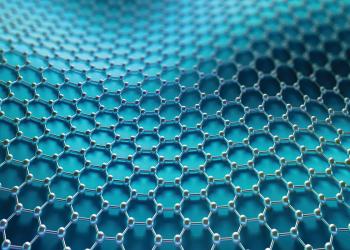News & Stories
2019
News
HKUST Researchers Discover New Virus Traits That May Help Fight Global Warming and Develop Anti-virus Drug
Oxygen levels in the ocean have depleted over the past few decades1 due to global warming and emissions of greenhouse gas, causing pollution and disrupting our ecosystem. In efforts to curb the trend, researchers from the Hong Kong University of Science and Technology (HKUST) discovered a mechanism that may eventually help an eco-friendly aquatic bacterium clean up more carbon dioxide in the ocean and produce more marine oxygen.
Like trees on land, cyanobacteria, or what commonly known as blue-green algae, perform photosynthesis in the ocean. They provide oxygen for marine life and absorb over 20% of the world’s total carbon emission. However, natural predation and virus infection kill nearly half of the world’s cyanobacteria on a daily basis. A virus called cyanophage alone, wipes out one fifth of the total cyanobacterial population every day.
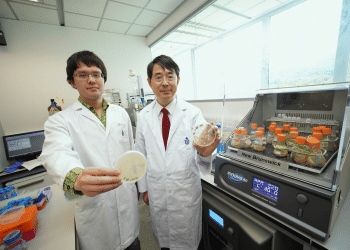
News
HKUST Researchers Unlock Cancer-Causing Mechanism of E. coli Toxin with Synthetic Biology Approach Paving Way for New Preventive Measures for Colorectal Cancer
An inter-disciplinary team of researchers at the Hong Kong University of Science and Technology (HKUST) unraveled how a toxin released by Escherichia coli (E. coli) – a human gut bacteria, is connected to colorectal cancer, offering new insights to the health impact of this prevalent bacteria and facilitating future research on the prevention of this third most common cancer worldwide*.
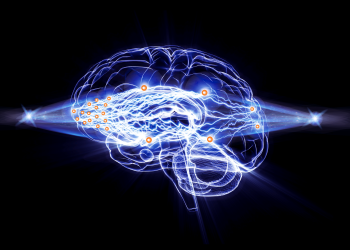
News
HKUST Researchers Build the World’s First All-Optical Multilayer Neural Network Paving Way for Next Generation of AI Hardware
Researchers from The Hong Kong University of Science and Technology (HKUST) have developed the world’s first all-optical neural network for deep machine learning – bringing artificial intelligence a step closer to matching human brains in tackling complex problems such as pattern recognition or risk management, and at much lower energy consumption at the speed of light.
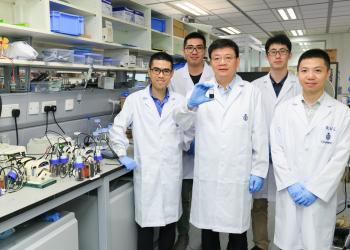
News
HKUST-led Research Successfully Develops Rechargeable Liquid Fuels to Power Electric Vehicles and Electricity Grid
A cross-university research project led by The Hong Kong University of Science and Technology (HKUST) has successfully developed an environment-friendly rechargeable liquid fuel that promises to have impact on a global scale. It can fully recharge an electric vehicle in a matter of minutes – a great enhancement from existing battery technology which usually takes hours.
This fuel – called ‘e-fuel’ – is carbon-neutral if charged with solar or wind energy. Like fossil fuels, it can be readily dispatched to the power grid, and also rapidly recharged to vehicles.
The research, titled ‘Creation of Rechargeable Electron-fuels for Stationary Power Supplies and Electric Vehicles’, is led by Prof. ZHAO Tianshou of HKUST and supported by academics from The University of Hong Kong, The Chinese University of Hong Kong, and The Hong Kong Polytechnic University.
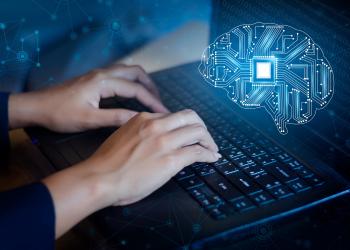
News
Let's Play it Smart on Computer Interfaces
Brain-machine interface - or the technology to synergize the brain with an external device so the latter can carry out orders, has been frequently featured in sci-fi movies as futuristic fantasy.
Instead of maneuvering with our fingertips, individuals connected to such devices can transmit their thoughts, and the machines would do their bidding like magic.
Recently, an American start-up promised to make this scenario a reality.
A small chip would be surgically inserted into one's brain, which is then connected to a receiver with or without a wire, allowing the user to control things like a mouse or a keyboard.
The company is even aiming to make the implant surgery equivalent to a simple surgical procedure like LASIK where one can walk away within hours.
While this sounds revolutionary for people with disabilities, is the general public ready to sign up for its service?
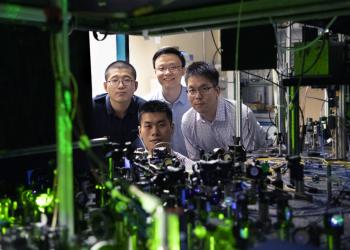
News
HKUST-led Research Team Unveils Groundbreaking Quantum Simulation of 3D Topological Matter with Ultracold Atoms
Complex topological matter (peculiar materials with different bulk and surface properties) has become the focus of both industrial and academic research because it is seen as a way to eventually make quantum computing more noise-free and robust. Today’s physical quantum computers are still noisy, and the protection of fragile quantum information against noises is a growing field of research. The goal of fault-tolerant quantum computing is to maintain its functionality in the presence of noise, which has driven investment into complex topological matter.
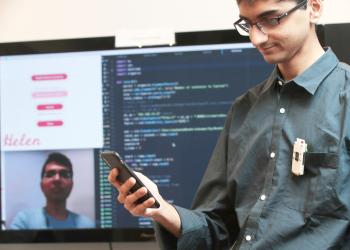
News
Read My Lips: AI for Hearing Aids
Padmanabhan KRISHNAMURTHY (Paddy)’s sister worked with an NGO in India that helps people with visual impairment. He observed that people with any kind of impairments face immense difficulties, and wanted to do something to alleviate their problems. This inspired him and his teammate Amrutavarsh Sanganabasappa KINAGI (Amrut) to invent a lip-reader named “Helen”, which has just won the top prize in the 2019 HKUST President’s Cup that encourages undergraduate students to showcase creativity, innovation, and excellence.
Named after Helen KELLER, the renowned American author and educator who overcame the adversity of being blind and deaf to become one of the 20th century's leading humanitarians, the lip-reading device is expected to benefit millions of people when it’s well developed. According to the World Health Organization, there are 466 million people globally with some form of disabling hearing loss, and this number is forecasted to grow up to 900 million by 2050.







